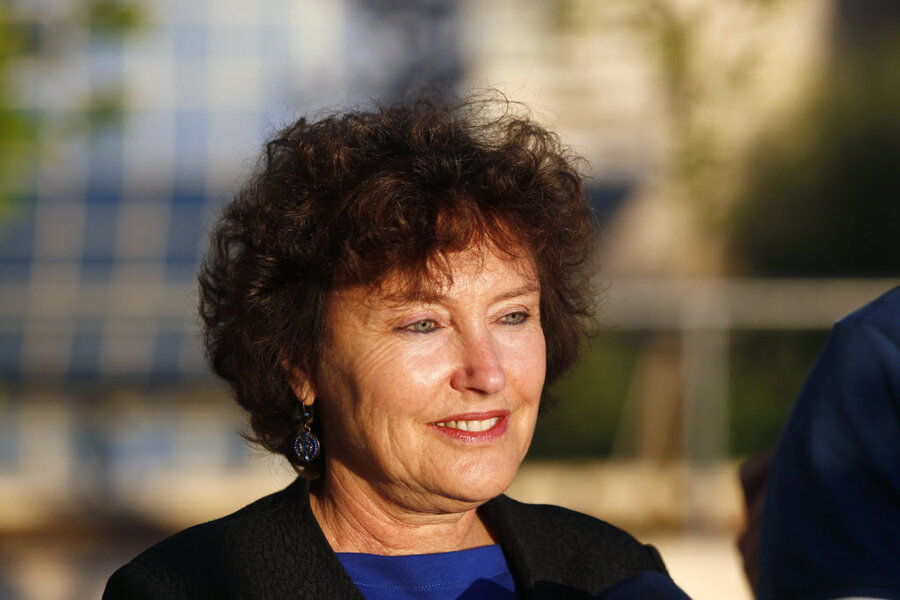Bank of Israel appoints first female chief, boosting gender equality
Loading...
| Jerusalem
Karnit Flug has been announced as the successor of her former boss Stanley Fischer as chief of the Bank of Israel, four months after he stepped down.
Her appointment not only concludes a drawn-out process of replacing the highly respected Mr. Fischer but is also a somewhat rare victory for women in a country that lags behind its Western counterparts in gender equality – and one that almost didn’t come about. Ms. Flug was passed over not once but twice in favor of male candidates, both of whom withdrew due to allegations of questionable conduct.
It is difficult to say with certainty whether gender bias played a substantive role in causing Israeli Prime Minister Benjamin Netanyahu to initially ignore the woman seen by many as Fischer’s preferred successor. Perhaps it was her relative lack of international standing, or a research paper she wrote during Mr. Netanyahu’s first term as prime minister that was not as flattering of his economic policy as he may have wished.
But what is certain is that Flug is set to become the first-ever female governor of the Bank of Israel in a country that is slowly but surely improving the relatively low number of women in top positions, from politics to academia to the military – a state of affairs that some have blamed not only on the large percentage of religious women who choose to stay home or work only part time in order to raise their often large families, but also to persistent chauvinism in Israeli society.
“Finally, even in Israel, [they] figured out that gender is no longer relevant when it comes to professionalism, and [they] are not afraid to appoint a woman to a senior financial post, even if it is considered a 'masculine' role," said Justice Minister Tzipi Livni, one of the most prominent women in Israeli politics. "I have no doubt [Flug] will efficiently and successfully fill the big shoes Stanley Fischer left behind – not because she is a woman, but because she's a worthy professional."
According to a 2012 gender gap report by the World Economic Forum, Israel ranked 46th in the world for the relative representation of women among legislators, senior officials, and managers; 62nd for the ratio of women in parliament; and 95th for women in ministerial positions.
To be sure, women’s status in Israel is far better than in other Middle Eastern countries, and has improved markedly over the past few decades. Affordable child care, state subsidies, and societal attitudes enable many mothers to work straight through their child-bearing years, with just three-month breaks per child, and fathers are commonly seen pushing strollers along the streets of Jerusalem or picking up their pigtailed daughters from elementary school.
In academia, women now constitute nearly 60 percent of master’s degree students, which may eventually help bring about more equitable ratios among faculty. As of 2010, women represented only 15 percent of full professors at Israeli universities, compared with 23 percent at US colleges and universities. Overall, women accounted for only about a quarter of the total faculty at Israeli universities, compared with an average of 38 percent in the European Union, prompting the government to introduce new measures to improve the situation.
There have also been moves to improve women’s representation in the Israel Defense Forces, where shorter terms of required service and resistance to women combat units have resulted in a dearth of women among the top ranks; though the number of female career officers has increased 40 percent since 2000, they still account for only 3 percent of combat officers. But 90 percent of jobs in the Israeli military are now open to women, and the IDF even has a women-only combat unit.
Such progress is no doubt encouraging to those fighting for greater gender equality on civilian battlefields, despite the hurdles that remain.








